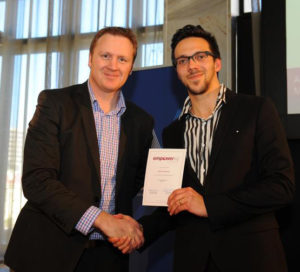The McGuinness Institute is non-partisan but we do have a strong interest in democracy and in having all New Zealanders (especially young New Zealanders) engaged with the political process and sharing their thoughts. For this reason, with the General Election coming up in September, we thought it was timely to update and set out our Project CivicsNZ work programme for the remainder of 2017. CivicsNZ aims to contribute to the conversation on building the social capital and empowerment of New Zealand citizens.
CivicsNZ work programme
- In August this year the Institute will publish two papers, Working Paper 2017/11 – Civics and Citizenship Education in New Zealand Schools and Think Piece 27 – Civics and Citizenship Education in New Zealand: A case for change?, both co-authored by Institute patron Todd Krieble and Master of Public Policy student Danijela Tavich. These papers explore the second recommendation of the Constitutional Advisory Panel: that the government ‘develops a national strategy for civics and citizenship education in schools and in the community, including the unique role of the Treaty of Waitangi, te Tiriti o Waitangi, and assign responsibility for the implementation of the strategy’ (see below for more information). Research for the papers included a two-hour evening workshop to explore the idea of a civics strategy in New Zealand, run by Todd and Danijela for a diverse group of forty individuals at the Institute. The discussions that took place around the current state of civics and citizenship education and recommendations for improvements have fed into the two papers. The papers also follow on from the Institute’s 2016 article in Policy Quarterly titled ‘Cīvitās: aligning technological and sociological transformation’ (Wendy McGuinness and Sally Hett).
- The Institute is supporting and working with Massey University-led

Dean Knight and Kieran Stowers (right) at the 2012 EmpowerNZ workshop project Design + Democracy to encourage engagement with social issues through user-centred design. The Institute is particularly focused on contributing to the development and promotion of the online platform On the Fence, an idea developed by Kieran Stowers, who was a participant at the Institute’s 2012 EmpowerNZ workshop. On the Fence is a tool that matches users’ personal values with parties and candidates and is targeted at first time or disengaged voters. Their updated 2017 website will be launched on 23 August 2017.
- The Institute is again supporting Political Cuts 2017, a pop-up salon that occupies unused retail spaces. The non-partisan initiative offers free haircuts alongside cheap coffee and provides a space to engage in political discussion. The initiative is a collaboration between Barbarian Productions and Jason Muir (Cirque and Haight Ashbury). The featured image for this blog is from the 2014 incarnation of Political Cuts, and can be found on the Urban Dream Brokerage website.
- We are aiming to produce a short video designed specifically to encouraging Pasifika voter engagement in the upcoming General Election. We have asked Elaina Lauaki-Vea, who was a participant at the 2015 TacklingPovertyNZ workshop, to help coordinate this.
- Later this year we will prepare a submission on Constitution Aotearoa, drawing on Todd and Danijela’s work and engaging with our networks for additional input (see below for more information).
For more information on our 2017 programme for Project CivicsNZ, visit our website. To check and update your voting enrolment details, please go to the Electoral Commission website.
More about the Constitutional Advisory Panel
The Constitutional Advisory Panel was established in 2012 to gather New Zealanders’ views on constitutional issues and report back to the Government. In its full report, the Panel recommended that the Government:
- ‘invites and supports the people of Aotearoa New Zealand to continue the conversation about our constitutional arrangements
- develops a national strategy for civics and citizenship education in schools and in the community, including the unique role of the Treaty of Waitangi, te Tiriti o Waitangi, and assign responsibility for the implementation of the strategy
- note the implementation of the strategy could include the co-ordination of education activities; resource development, including resources for Māori medium schools; and professional development for teachers and the media.’
More about Constitution Aotearoa
Constitution Aotearoa is an ongoing project established by Sir Geoffrey Palmer and Dr Andrew Butler that, among other things, provides an online collection of blogs, media, videos and other resources (‘The Conversation’) that build the case for a Constitution for New Zealand. The project was formed under the assumption that ‘New Zealand’s basic rules of how we govern ourselves are difficult to find, hard to understand and easy to change. We need a modern constitution to fix that.’
Sir Geoffrey and Dr Butler have co-authored a draft Constitution and the book A Constitution for Aotearoa New Zealand, both of which are available on the Constitution Aotearoa website. The forum enables the public to write submissions and reflections on the content of the Constitution that will inform the revised version of the Constitution. Submissions are open until 1 December 2017.
The draft Constitution aims to ‘reflect New Zealand’s identity and nationhood, protect rights and liberties, and prevent governments from abusing power’. Constitution Aotearoa seeks to improve civic culture by exploring a civics and citizenship education strategy, as well as by enforcing transparency and accountability through a Constitution that will allow New Zealanders to access and understand the basic rules of government.
The Constitution Aotearoa project highlights how an engaged and informed society requires partnerships between government agencies, schools, institutions and individuals alike to ensure that New Zealand is robust in both protecting its democracy and managing future disruptions.
